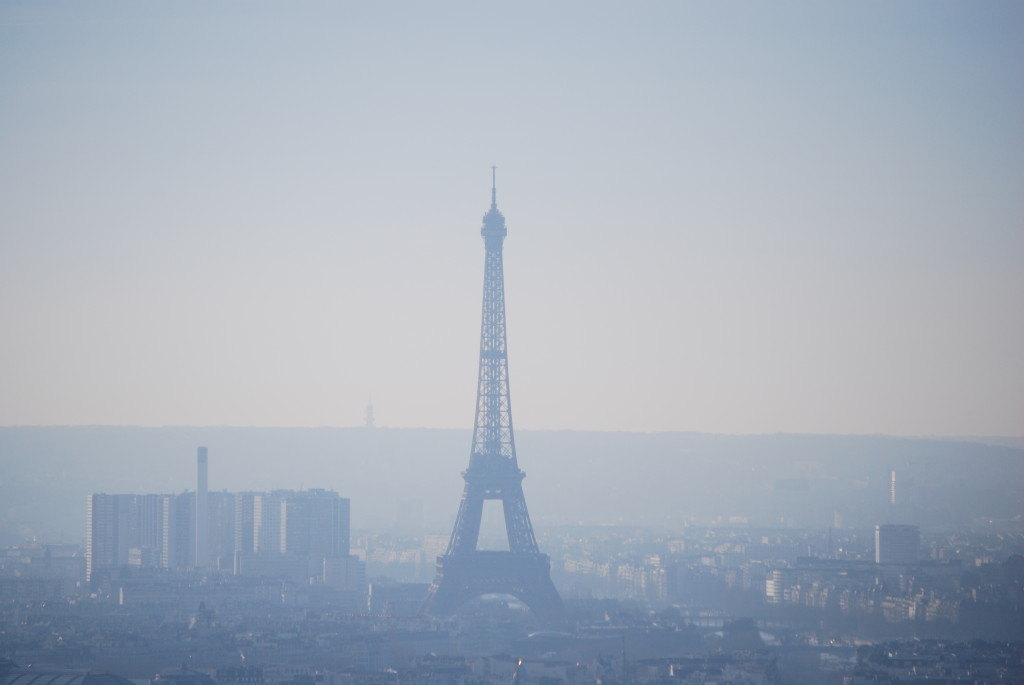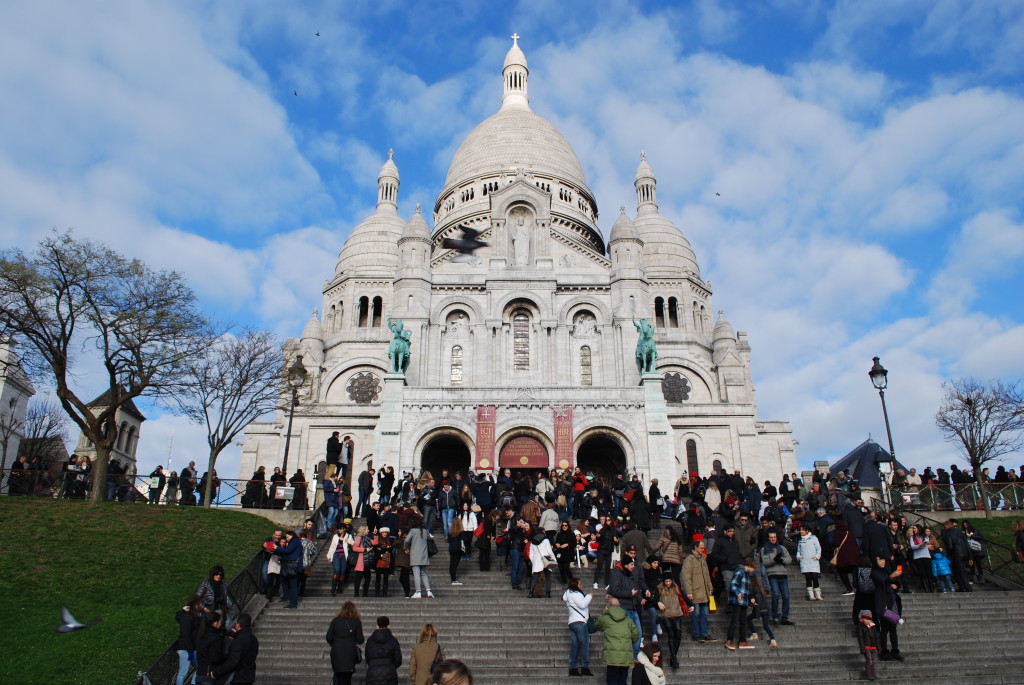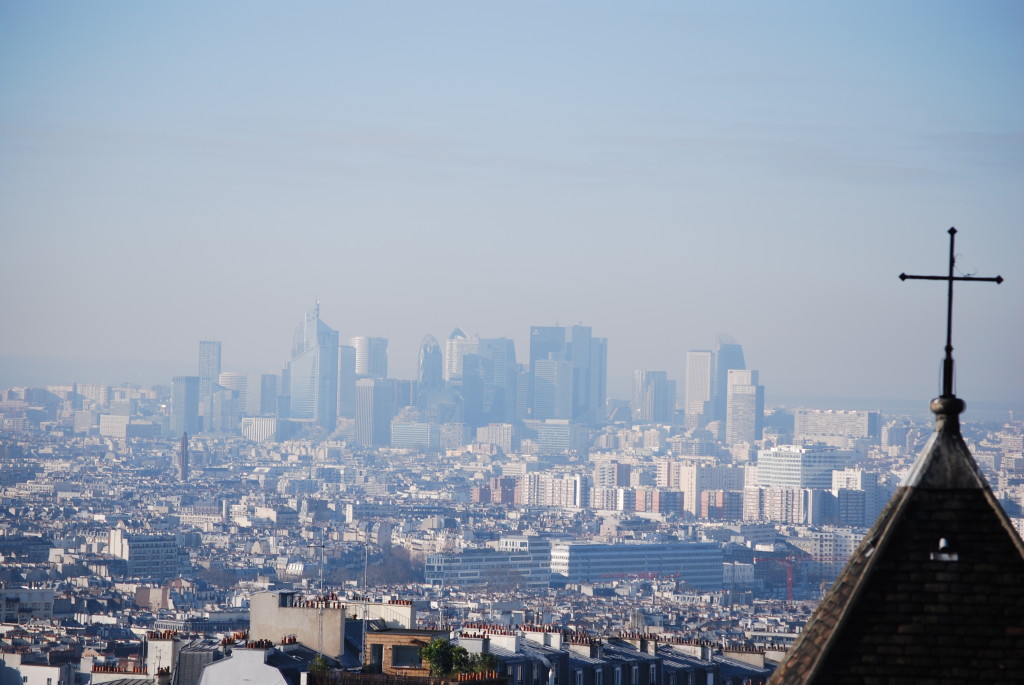 The Eiffel Tower from Afar
The hill itself is called Montmartre, which translates to the "Mount of Martyrs", a nod to St. Denis, a bishop who was executed by Romans for preaching Christianity in the 3rd Century. Though the Basilica of Sacré Coeur is definitely the most well-known structure on the hill, it's also home to a much older structure, the Church of Saint Peter of Montmartre. It was supposed to have been founded by St. Denis in the 3rd century, but had to be rebuilt in the 12th century by Louis VI.
The Eiffel Tower from Afar
The hill itself is called Montmartre, which translates to the "Mount of Martyrs", a nod to St. Denis, a bishop who was executed by Romans for preaching Christianity in the 3rd Century. Though the Basilica of Sacré Coeur is definitely the most well-known structure on the hill, it's also home to a much older structure, the Church of Saint Peter of Montmartre. It was supposed to have been founded by St. Denis in the 3rd century, but had to be rebuilt in the 12th century by Louis VI.
Tag: history
continued from Part One
One of the most rewarding (and breathtaking) experiences you can have in Paris is taking the Metro to the northern part of the city and taking the hike atop Montmartre.
While Montmartre is a relatively recently established district (established in 1995), it's been inhabited since Gallo-Roman times. During the 17th Century, excavators found Roman baths dating back to the 2nd century A.D. and coins dating back to the 3rd century. These days, it's become one of the artsier districts in the city, which is no surprise. In the past, it's been home to the studios of notable artists like Dalí, Modigliani, Monet, Mondrian, Picasso, Pissarro and Van Gogh. Artists flocked here around the turn of the 19th Century because of the bohemian scene, but would soon leave, largely at the outbreak of World War I. Though some of these famous artists left, the district has retained this characteristic.
The area derives its name from a 130-meter hill that, if you have the wind to climb, is home to the beautiful Basilica of Sacré Coeur, a Roman Catholic basilica on which construction began in 1875 after losing the French-Prussian War and was finished in 1914.
It's the highest point in the city and can be viewed all the way from l'Arc de Triomphe. As such, from its base, you get some incredible views. Here are some pictures I took from the Basilica:
 The Eiffel Tower from Afar
The hill itself is called Montmartre, which translates to the "Mount of Martyrs", a nod to St. Denis, a bishop who was executed by Romans for preaching Christianity in the 3rd Century. Though the Basilica of Sacré Coeur is definitely the most well-known structure on the hill, it's also home to a much older structure, the Church of Saint Peter of Montmartre. It was supposed to have been founded by St. Denis in the 3rd century, but had to be rebuilt in the 12th century by Louis VI.
The Eiffel Tower from Afar
The hill itself is called Montmartre, which translates to the "Mount of Martyrs", a nod to St. Denis, a bishop who was executed by Romans for preaching Christianity in the 3rd Century. Though the Basilica of Sacré Coeur is definitely the most well-known structure on the hill, it's also home to a much older structure, the Church of Saint Peter of Montmartre. It was supposed to have been founded by St. Denis in the 3rd century, but had to be rebuilt in the 12th century by Louis VI.
 The Eiffel Tower from Afar
The hill itself is called Montmartre, which translates to the "Mount of Martyrs", a nod to St. Denis, a bishop who was executed by Romans for preaching Christianity in the 3rd Century. Though the Basilica of Sacré Coeur is definitely the most well-known structure on the hill, it's also home to a much older structure, the Church of Saint Peter of Montmartre. It was supposed to have been founded by St. Denis in the 3rd century, but had to be rebuilt in the 12th century by Louis VI.
The Eiffel Tower from Afar
The hill itself is called Montmartre, which translates to the "Mount of Martyrs", a nod to St. Denis, a bishop who was executed by Romans for preaching Christianity in the 3rd Century. Though the Basilica of Sacré Coeur is definitely the most well-known structure on the hill, it's also home to a much older structure, the Church of Saint Peter of Montmartre. It was supposed to have been founded by St. Denis in the 3rd century, but had to be rebuilt in the 12th century by Louis VI.

